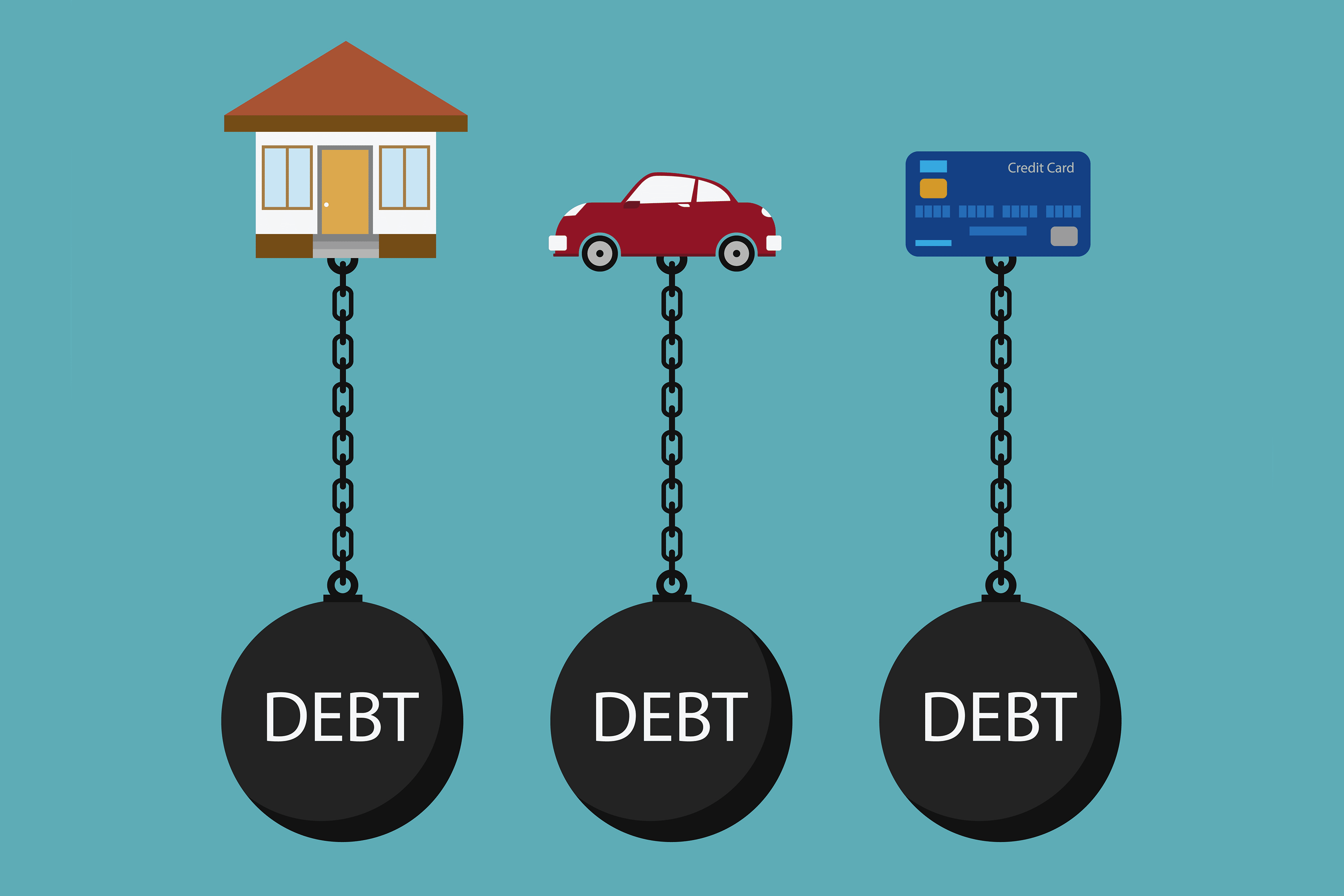
Between mortgages, auto payments, student loans, healthcare costs, and credit cards, Americans are drowning in debt.
Recent debt balances analyzed and reported by NerdWallet show that households carrying debt had an average of $131,431. Even if much of that can be attributed to mortgages, the number only reflects how many households are completely trapped by the amount they owe.
What’s more, credit card debt climbed 8 percent from 2016-2017, reaching $905 billion. It doesn’t have to be this way. With steadfast grit and good advice, you can climb out of your debt and get on the road to financial freedom.
Get a Baseline of Your Finances
The last thing anyone in a mountain of debt wants to do is take a step back and clarify their financial picture. Knowing what you owe your creditors down to the nickel is jarring. However, you’ll never understand the true predicament you’re in without knowing the exact total you owe.
Add up each of your outstanding balances, current monthly income, and regular outgoing payments for fixed costs. Also get your credit score. With your full financial picture in view, determine your most volatile debt, the highest balance, and/or highest interest rates you’re incurring. Focusing on these balances and addressing crippling interest rates is top priority.
Ask for Lower Interest Rates
Like is the case with much of life, if one doesn’t ask, they’ll never know. The same can be true when trying to consolidate or transfer balances from a higher-interest card to a lower-interest card. Any online balance transfer rate you’re being offered isn’t the best you can get. However, many people don’t go further than the initial offer, costing them very high balance transfer fees. According to a creditcard.com survey, more than eight in 10 consumers who asked for lower interest rates, among other fee waivers, were successful. However, the same survey also found that just 50 percent of consumers made any requests at all.
Trim Remaining Fat
Here comes the tough part: analyzing your lifestyle and making sacrifices. Look back through your statements, what types of purchases are you having trouble remembering? Start eliminating those. As Trent Hamm writes for The Simple Dollar:“This is perhaps the biggest lesson I’ve ever learned about personal finance. If it’s an item or an experience you won’t remember in a few days, you shouldn’t be spending any money on it. If it’s completely forgettable, then any money you spent on it is basically just lost. The only completely forgettable things you should be spending money on are your most basic life needs – basic food, basic clothing, and shelter.”
In addition to curbing forgettable spending, try eliminating things you could go without, or enjoy a different way for reduced cost. For example, you could use the library for internet. You can exercise outside instead of in a gym. If you have a dog, you can go outside and train with your pet and stay in great shape without spending a single dollar on a gym membership.
When Overwhelmed, Turn to the Experts
In some cases, the amount of debt is just too high to handle on your own. For people who can’t see a way out past their finances, services like debt relief and bankruptcy may help. Debt relief assistance can remove the daily dread of creditor calls and mail while relieving a substantial percentage off your overall debt.
Top relief companies like Freedom Debt not only consolidate your debts and negotiate with creditors to lower your overall balance, they provide debt management guidance to help you change your lifestyle habits once and for all.
Even if you don’t end up using their services, simply talking to experts could give you a better idea of the next step to take. Being in debt is stressful and scary. Getting expert opinion and the confidence to take the next step can make a world of difference.
Final Words: Stop increasing your debt
This sounds obvious but many people drowning in debt are still purchasing on those same lines of credit. This strategy means debt for life. The stuff you need should be paid for with debit or cash. Continuing to purchase on your credit card while carrying a balance is self-sabotage.

Founder Dinis Guarda
IntelligentHQ Your New Business Network.
IntelligentHQ is a Business network and an expert source for finance, capital markets and intelligence for thousands of global business professionals, startups, and companies.
We exist at the point of intersection between technology, social media, finance and innovation.
IntelligentHQ leverages innovation and scale of social digital technology, analytics, news, and distribution to create an unparalleled, full digital medium and social business networks spectrum.
IntelligentHQ is working hard, to become a trusted, and indispensable source of business news and analytics, within financial services and its associated supply chains and ecosystems






























